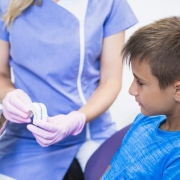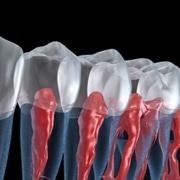How Long Does it Take For Baby Teeth to Fall Out?
Is the Tooth Fairy sitting idly by while your child’s baby teeth refuse to budge? Is your wallet bulging with fresh one dollar bills or silver dollars, just waiting to find their way under your child’s pillow? Watching your child lose their baby teeth is an exciting milestone, but it can also leave parents wondering – how long does this process actually take? For some parents, the process may feel interminable. But rest assured, they will fall out eventually, when they’re good and ready. On average, children start losing their baby teeth around age 6, and the process continues until about age 12.
The Timeline for Tooth Loss
Did you know that baby teeth usually fall out in the same order they came in? This little fun fact can be a fun way to try to predict which of the baby teeth will fall out next. The front teeth are typically the first to go, making way for permanent teeth around age 6 or 7. The molars and canines are the last to leave the nest, often not falling out until ages 10 to 12. If your child’s teeth aren’t following this admittedly very general timeline, it’s a good idea to have a pediatric dental exam in Victorville, CA, though.
Why the Process Takes Years
Teeth fall out gradually to ensure the jaw grows properly and there’s enough space for adult teeth. If everything happened at once, there wouldn’t be enough room for the new teeth to align correctly. This slow, natural process gives the jaw time to develop and helps prevent crowding. Mother Nature knows what she’s doing!
Losing baby teeth is part of growing up, and while it can feel like a long process, it’s all happening for a reason. If you have any other questions about your child’s oral health, contact your Victorville, CA pediatric dentist today!









